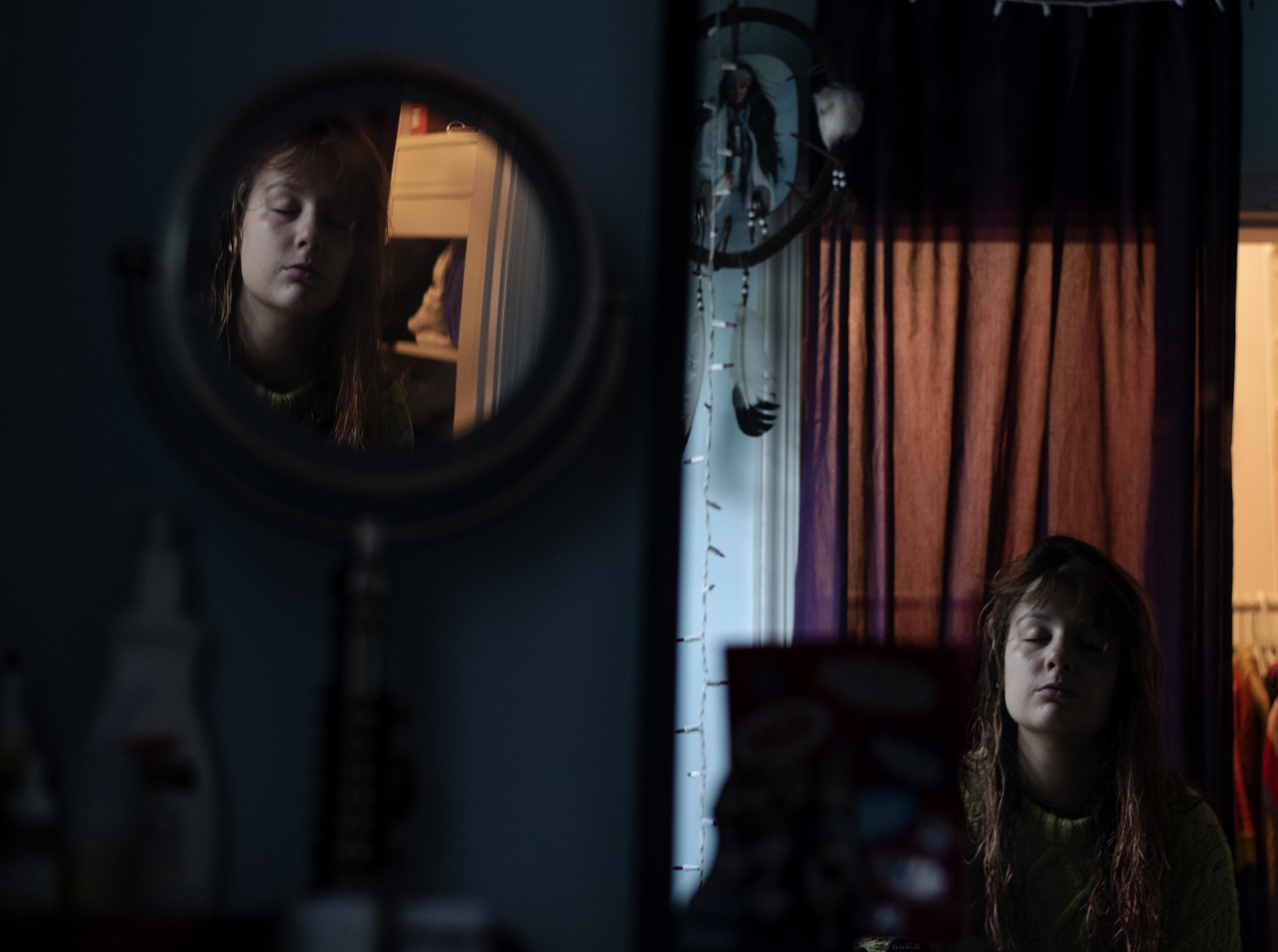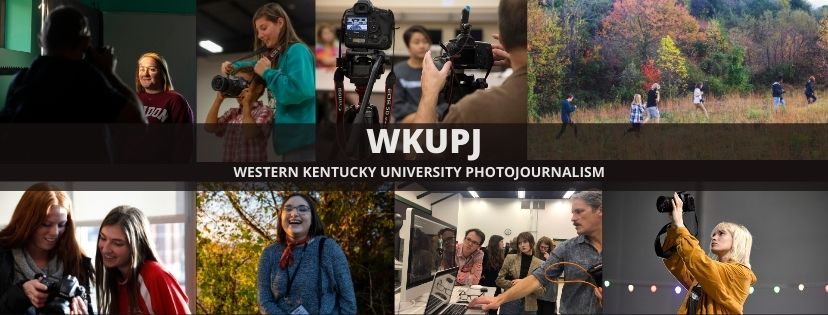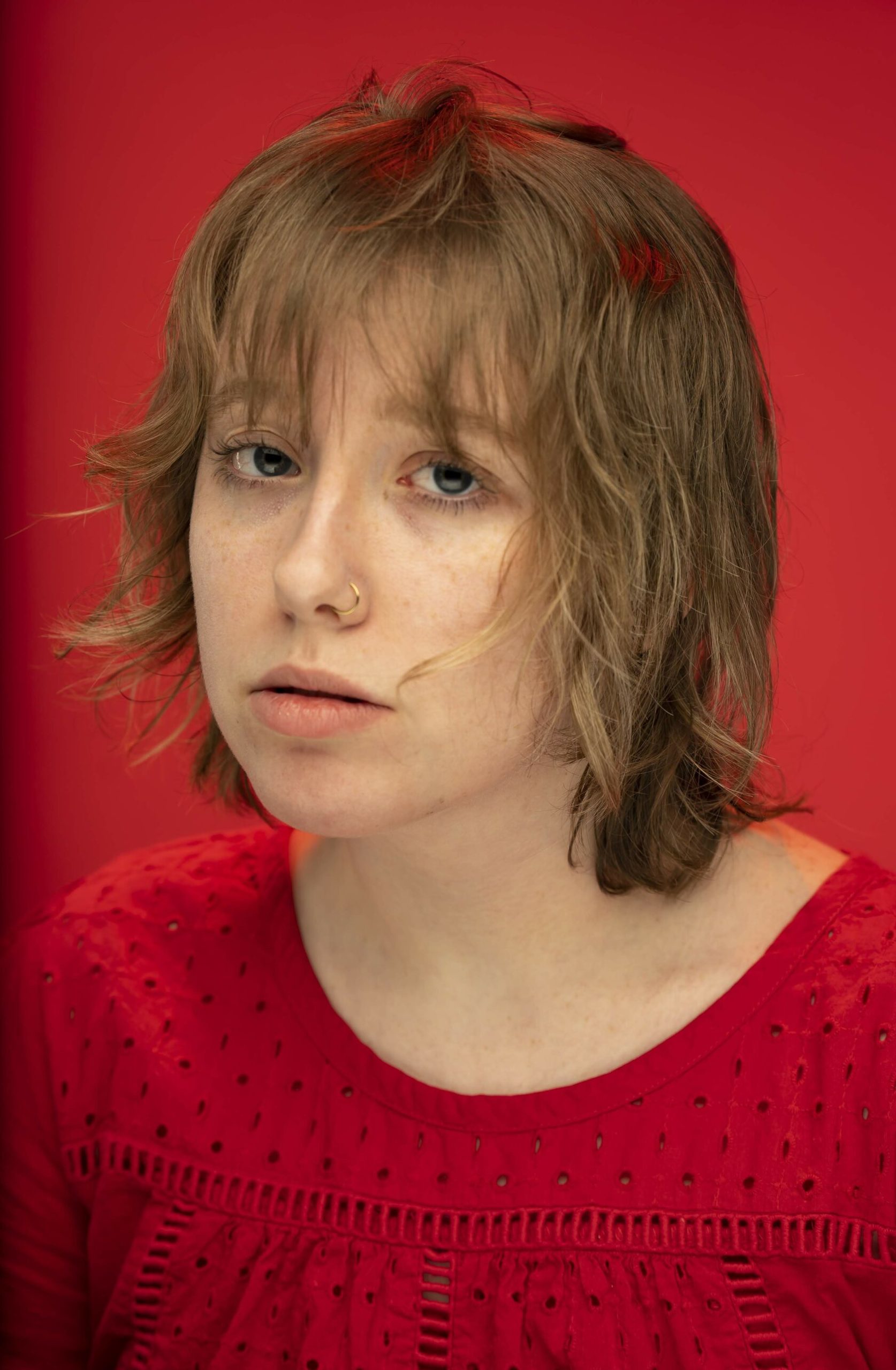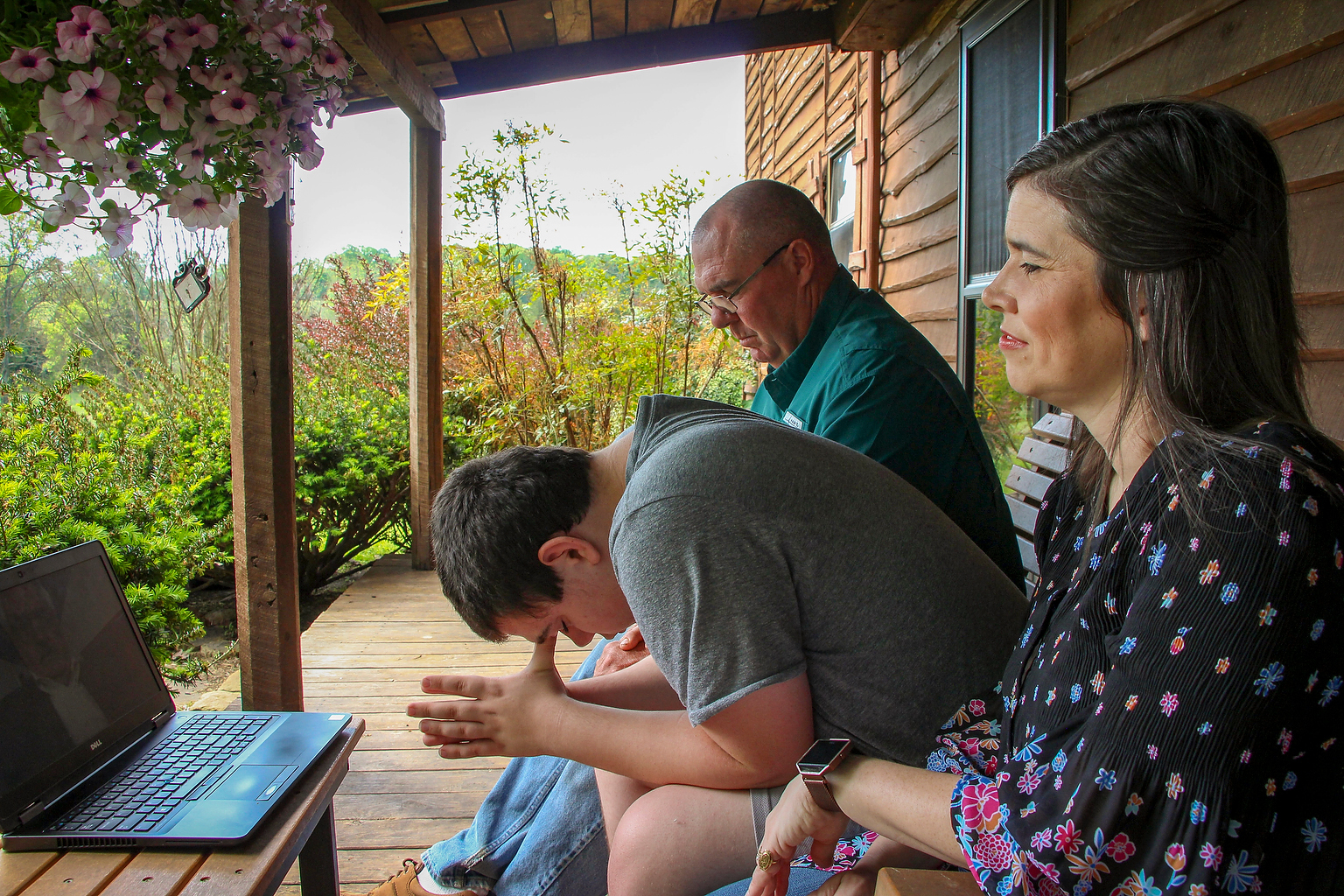LOOKING INWARDS
As the global pandemic transitioned from novelty to reality, Western Kentucky University college students realized their lives would be altered forever
When students of the School of Media at Western Kentucky University beelined from their cramped dorm rooms and fluorescent lit classrooms in Jody Richards Hall to enjoy a week respite on March 6, 2020, they were blissfully ignorant of the storm that was about to shatter their perception of what college education would become, how their world would change and what their future may become.
The COVID-19 pandemic at first felt like this bump in the road that was merely an inconvenience but as WKU President Timothy Caboni, like other schools across the country and around the globe, announced classes were to move online for the rest of the semester, college life as it used to be quickly became a distant, hazy dream. Dimly lit basements or child-hood bedrooms became the new classroom as increasingly un-kept students clung to their red solo cups which were filled with a liquid of ambiguous content (at least to the professor) as they swayed to whatever heavy bass they could feel in their mind as they pretended to maintain attention in the new Zoom world. Instantly gone from their grasps the sensations of college life freedom.
Produced by Gabi Broekema
Content by Fatimah Alhamdin, Grace Bailey, Raaj Banga, Morgan Bass, Gabi Broekema, Alex Driehaus, Kennedy Gott, Morgan Hornsby, Missy Johnson, Cassady Lamb, Sam Mallon, Vonn Pillman, Rachel Taylor, Lily Estella Thompson
 Photo and Journal entry by Sam Mallon
Photo and Journal entry by Sam Mallon
SELF PORTRAIT
MARCH, 2020
I find myself exhausted though my quarantine days are filled with very little movement. I long for places to go and people to see; I am grieving the could-have, would-have, should-have-beens. I am grateful that I am safe and it is my responsibility to keep others safe, so I have been staying inside and learning to spend time with myself. I have found solace in the fact that the trees are turning green — they remind me that we are all still growing —I am eager to see how much stronger we are on the other side of the current pandemic.
Video and Journal by Lily Estella Thompson
MAKING IT THROUGH
SUMMER, 2020
“Upon reflection of our relationship throughout the pandemic, Brandon and I try to make sense about what went wrong, and what went right during this time of isolation. In a video and thru images I took, we are both made to talk about what it has been like living together through one of the most historic times in our lives.”
Photo and Journal by Morgan Bass
SELF PORTRAIT
MAY, 2020
I used to be an extrovert, someone who would strike up conversations with strangers for fun. After half a year in social isolation, the mere thought of putting myself out there like that is suffocating. Since March of 2020, I have been on a downward spiral into a pit of panic attacks and depressive episodes. I have been trying to act like the person I was before, but there is a piece that is now missing from that person that I used to be, and I am not sure how to pretend that it isn’t.
Photo of her family by Rachel Taylor
FAMILY CHURCH SERVICE
APRIL, 2020
“The first thing I’m doing when quarantine is over is going to church,” Catherine Taylor said on Sunday. Much like her husband, she has missed very few Sundays and longs to be back in the church building she grew up in, rather than praying virtually on her front porch. “I know that church isn’t just a building, but I can’t wait to be worshiping with my church family again.” she added.

 Photo and Journal entry by Sam Mallon
Photo and Journal entry by Sam Mallon
